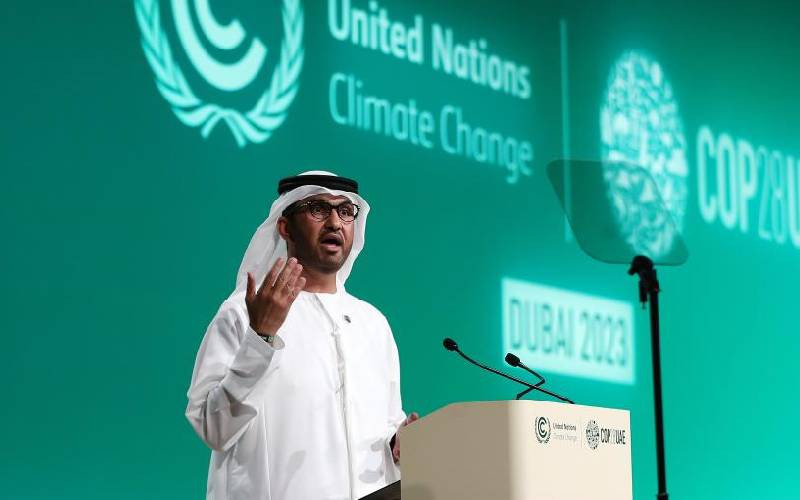Kitui: James Kitavi recently stood on top of a hill on his 10-acre farm in Mui Basin, Kitui County in Kenya and proudly surveyed his expansive farm.
In a few days’ time earthmovers would rumble into this virgin land, just one among those earmarked for a multi-billion dollar coal mining project, and probably turns his life up-side-down.
As he majestically walked around the place he has called home all his life, his right ear pinned to an old transistor radio, various thoughts raced through his mind. A few weeks earlier he had been informed by the government that he was going to be compensated and relocated, and he wondered how that would change his life.
The arrangement did not sound that bad, actually. Compensation meant money, and lots of it, and recently he had heard of how poor peasants a few hundreds of kilometres away in Mtito Andei, Makueni County had become overnight millionaires after their farms were compulsorily acquired by the government for the Kenya-Uganda Standard Gauge Railway project.
His rosy thoughts and plans on how he would spend the windfall were interrupted by an announcement over his small, hand-held radio that non-governmental organisations were calling for divestiture from fossil fuel.
He knew what that meant: If the government listened to the placard-waving, conference-attending green activists, his windfall would not come. The idea that he was about to kiss goodbye the twin evils of poverty and inequality was beginning to sound like yet another pipe dream. Shikes!
Kitavi is just one among millions of people around the globe whose countries are endowed with huge fossil fuel deposits, and who fear their expectations could be shattered unless calls for divesting from fossil fuels are handled in a sober and realistic manner.
Fossil fuels are in three categories; oil that is mainly used for transport, the gas used mainly for cooking and heating, and coal, mainly used for electricity generation.
Those calling for divestiture from fossil fuel argue that we cannot afford the climate consequences of utilising them, and that we should instead embrace renewable energy.
However, statistics show that in the past two decades, about 87 per cent of the energy that the world consumed came from fossil fuel. At the global level even today, and despite agitation to save the world, the use of renewable energy such as wind and solar is still very minimal.
Hydroelectric power remains the biggest and cheapest renewable energy, but recent studies show that it has the least capacity for expansion.
While opinion is still divided on whether the world is ready to divest from fossil fuel, Mr Godfrey Onyango, the Founder and Principal Secretary, Justice and Environment Foundation, argues that the world is not ready for such a major move.
“Because of the ever-growing global population, we will need more and more fossil energy,” he says. “What we need to realise is that we still do not have alternative sources of energy which can drive the growing demand for industries and populations.”
Mr Onyango agrees that as much as it is true that fossil energy causes changes in climates and contributes to global warming, the question people must answer is: What is the developed world doing about it?
“We don't have to follow wholesale what non-governmental organisations want,” he argues. “The percentage of greenhouse gas from Africa is very minimal compared to what is coming from the West. That is where more action is needed.”
Stay informed. Subscribe to our newsletter
He adds that if Africa divests from fossil fuel, communities living where these resources are found will be the biggest losers, and of course their nations.
Mr Onyango observes that the issue of divesting from fossil fuel should be given a global approach, where developed countries should not be seen as wanting to interfere with those that are developing.
“Developing countries have a lot of problems to solve, including poverty, which they can address using revenue from fossil fuel,” he contends.
He questions why the calls for divesting from fossil fuel are coming now yet the developed economies have been major beneficiaries of exploitation of the same for centuries.
“With the recent discovery of large deposits of fossil fuels in Africa, this is the time African governments need to rise to the occasion and develop their capacities, communities, infrastructure and other sectors using revenue generated from oil,” he said.
However, according to Prof Chinedum Nwajiuba, Dean of Postgraduate Studies at Imo State University Owerri, Nigeria, the world is headed towards divesting from fossil fuel, whether Africa likes it or not.
Prof Nwajiuba, who is also the executive director of the Nigeria Environmental Study Action Team, says many countries that dominate the world’s economy have been actively working on divesting from fossil fuel.
“The United States and Europe, for instance, are headed in that direction,” he says. “As the technology for non-fossils is improved, this trend will become the dominant source of energy in the world
Prof Nwajiuba adds that Africa should also be headed towards embracing renewable energy because it is endowed with abundant solar energy.
“We should be in the forefront of dependency on solar energy, because Africa is well endowed in that respect. Sadly, that is not the case,” he laments.
He however adds that he does not expect a decision not to exploit fossil fuels any time soon, but sees technology and economic factors soon reducing the importance of fossils in the global energy scene.
“My country, Nigeria, is a classic case of a nation that will be losing foreign exchange as crude oil exports decline and as her major customers seek other sources for their energy needs. But that should not be a surprise to Nigeria and countries in similar circumstances,” he says.
Prof Nwajiuba foresees oil producing countries facing adverse economic effects due to reduced crude oil exports as developed economies embrace renewable energy.
“The local currencies will be devalued and I expect inflation, layoffs and increased unemployment, which will worsen social crises and conflicts as well as other related security challenges. If the trend in the international oil market continues, Nigeria will face very challenging times,” he says, adding that the issue of divesting from fossil fuels is going to be driven primarily by developments in technology and economics.
“In international trade and politics, fairness is not a key factor. What is important is the interest of the various contending forces at play. Ultimately, it is the trend of the development in technology and economics that will determine what happens.”
Prof Nwajiuba notes that coal is not as important as it were some years ago due to the same reasons, adding that the African position on divesting from fossil fuels will be known before the coming Conference of State Parties (COP21) in Paris in December this year.
His position is supported by the Director of Climate Action Network Europe, Mr Wendel Trio, who says the world is ready to divest from fossil fuel.
“Actually, this should have started quite a while ago,” says Mr Trio. “For Climate Action Network Europe, the world needs to phase out the use of fossil fuel by the middle of this century and phase in 100 per cent renewable energy.”
Mr Trio says this will be the only way to avoid the most dangerous impacts of climate change, and that, “in this effort, Europe and other industrialised countries need to take the lead and achieve this decarbonisation earlier”.
Mr Trio says divesting from fossil fuels will have more advantages than disadvantages to communities who look forward to benefiting from fossil deposits.
For local communities, he says access to decentralised forms of renewable energy offer much more interesting pathways, including cheap energy that is easily available and quickly installed.
“There are plentiful of studies that show how renewable energy has actually way more advantages for local communities,” says Mr Trio, adding that Europe needs to have a unified approach on how to deal with fossil fuel, which the 28 European Union member states are expected to present at COP21 in Paris.
In February this year, several non-governmental organisations called on institutional leaders to immediately freeze any new investment in fossil fuel companies, and to divest from direct ownership and any commingled funds that include fossil fuel public equities and corporate bonds within five years.
The UN Secretary General Ban Ki-moon has also called upon companies to reduce their investment in fossil fuel, or to divest completely. His campaign has included urging companies like pension funds or insurance companies to reduce their investments in coal and a fossil-fuel based economy to move to renewable sources of energy.
According to the UN’s Intergovernmental Panel on Climate Change (IPCC), around 80 per cent of known fossil fuel reserves would need to remain in the ground for the international community to reach its declared goal of staying below a maximum two degrees Celsius global average temperature rise.
The United Nations Framework Convention on Climate Change (UNFCCC) is also supporting calls for investors to divest from fossil fuel assets.
The UN agency, which is in charge of global climate change negotiations, says it is lending its “moral authority” to the divestment campaign because it shares the ambition to get a strong deal to tackle global warming at the UN Summit in Paris in December.
“We support divestment as it sends a signal to companies, especially coal companies, that the age of ‘burn what you like, when you like’ cannot continue,” Nick Nuttall, the UNFCCC spokesman, was quoted by The Guardian as saying earlier this year.
However, the move is likely to be controversial as the economies of many nations at the COP21 negotiations in Paris heavily rely on coal, oil and gas.
 The Standard Group Plc is a
multi-media organization with investments in media platforms spanning newspaper
print operations, television, radio broadcasting, digital and online services. The
Standard Group is recognized as a leading multi-media house in Kenya with a key
influence in matters of national and international interest.
The Standard Group Plc is a
multi-media organization with investments in media platforms spanning newspaper
print operations, television, radio broadcasting, digital and online services. The
Standard Group is recognized as a leading multi-media house in Kenya with a key
influence in matters of national and international interest.
 The Standard Group Plc is a
multi-media organization with investments in media platforms spanning newspaper
print operations, television, radio broadcasting, digital and online services. The
Standard Group is recognized as a leading multi-media house in Kenya with a key
influence in matters of national and international interest.
The Standard Group Plc is a
multi-media organization with investments in media platforms spanning newspaper
print operations, television, radio broadcasting, digital and online services. The
Standard Group is recognized as a leading multi-media house in Kenya with a key
influence in matters of national and international interest.









